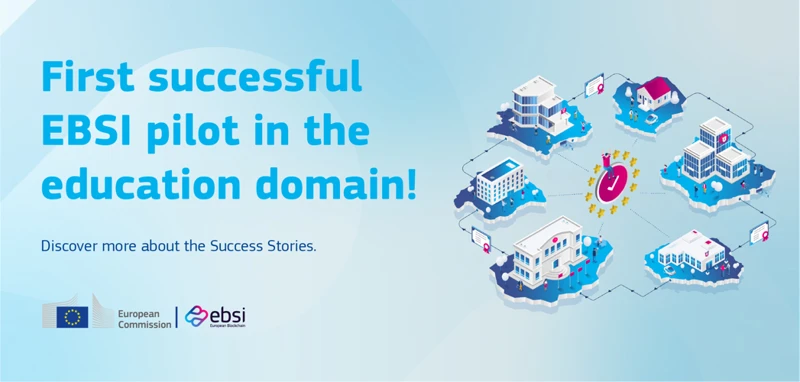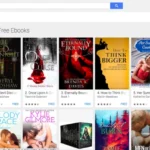In today’s competitive market, delivering targeted promotions to students is crucial for brands looking to capture their attention and loyalty. That’s where digital verification comes in. With the power of digital verification, brands can offer exclusive discounts to students, creating a sense of belonging and enticing them to shop more frequently. Not only does this boost conversion rates and generate a higher return on investment, but it also saves valuable time and resources by reducing support calls and preventing discount abuse. In this article, we will explore the benefits of digital verification, how it works, and why students love exclusive discounts. We will also delve into real-life case studies of brands that have successfully implemented digital verification to boost revenue and foster long-term customer loyalty. So, if you’re ready to take your marketing strategy to the next level and tap into the immense potential of student promotions, read on to learn how to implement digital verification for your business.
Contents
The Benefits of Digital Verification

Digital verification offers a range of benefits that can greatly enhance a brand’s ability to deliver targeted promotions to students. Firstly, it saves both money and resources by streamlining operations and eliminating the need for manual verification. This not only increases internal efficiency but also reduces the risk of fraud and identity theft, protecting both the brand and the customer. Additionally, digital verification creates and leverages customer loyalty by demonstrating to consumers that the brand is taking steps to prevent fraud and ensure their security. This builds trust, engagement, and long-term relationships with students. Re-verification allows for ongoing protection and engagement, enabling brands to continue offering exclusive discounts and upselling opportunities to students as their circumstances change. By implementing digital verification, brands can maximize cost savings, build strong relationships with students, and ultimately drive revenue growth. To learn more about the advantages of digital verification for student discounts, click here.
Saving Money and Resources
Digital verification not only offers benefits for brands and students but also contributes to saving money and resources. By implementing digital verification, brands can streamline the student verification process, eliminating the need for manual verification methods that can be time-consuming and costly. With a digital platform, brands can validate student status efficiently and accurately, reducing administrative costs associated with verifying student eligibility for discounts.
Digital verification enables brands to target their promotions specifically to students, ensuring that discounts and offers are only accessible to the intended audience. This targeted approach helps brands maximize cost savings by eliminating the risk of discount abuse or misuse. With digital verification, brands can prevent unauthorized individuals from accessing student discounts, ensuring that resources are allocated to the intended recipients.
Additionally, digital verification contributes to resource efficiency in other aspects of a brand’s operations. By leveraging digital platforms, brands can optimize their marketing strategies and allocate resources more effectively. With access to data and analytics provided by digital verification systems, brands can gain insights into student preferences and behaviors, allowing them to tailor their marketing efforts and allocate resources to areas that generate the most engagement and conversions.
Digital verification plays a significant role in achieving a more efficient distribution of resources, including financial resources and promotional offers. By eliminating redundant processes and ensuring targeted promotions, brands can reduce costs, prevent discount abuse, and optimize the allocation of their resources. This not only benefits the brands themselves but also contributes to a more sustainable and effective approach to marketing.
To learn more about how digital verification helps prevent offer abuse, you can check out our article on preventing offer abuse with digital verification.
Creating and Leveraging Customer Loyalty
When it comes to building a loyal customer base, businesses need to focus on creating unique experiences and delivering exceptional customer service. By understanding and meeting customer expectations, businesses can earn the loyalty of their customers.
One way to achieve this is by leveraging customer loyalty programs. These programs allow businesses to segment customers based on their sentiment and run personalized campaigns tailored to their needs. By listening to customers and addressing their concerns, businesses can optimize their processes and improve customer satisfaction.
Another benefit of customer loyalty programs is the ability to identify at-risk customers and predict churn. By monitoring factors such as decreasing engagement or declining redemption rates, businesses can proactively reach out to these customers with targeted retention efforts to prevent them from leaving.
Customer loyalty programs provide opportunities for upselling and cross-selling. By analyzing loyalty program data, businesses can identify customer preferences and recommend complementary or premium upgrades, increasing customer satisfaction and revenue.
Loyal customers are a valuable source of information. They provide feedback on what they love about a brand and offer suggestions for improvement. By creating a panel of these customers, businesses can fine-tune their products and services, ultimately increasing customer advocacy.
To create customer loyalty, businesses can also highlight the value they provide to customers. By emphasizing the benefits of loyalty programs, businesses can ensure customers are aware of the value they receive in exchange for their loyalty.
Creating and leveraging customer loyalty is essential for businesses looking to drive higher levels of customer satisfaction and reduce churn. By understanding customer expectations, personalizing experiences, and continuously improving processes, businesses can earn the loyalty of their customers and build long-lasting relationships.
Learn more about the benefits of customer loyalty programs here.
Re-verification Enables Long-Term Protection and Engagement
Re-verification is a crucial aspect of digital verification that offers long-term protection and engagement for both businesses and customers. By implementing re-verification, companies can prevent long-term offer abuse and ensure the ongoing eligibility of their customers. This not only protects businesses from potential losses but also helps them maintain a strong relationship with their customer base.
One of the key benefits of re-verification is the ability to convert students into loyal customers even after they graduate. By re-verifying their eligibility, businesses can continue engaging with students and offer them new promotions and discounts. This not only keeps the customers engaged but also increases the chances of converting them to full-price customers. In fact, companies using SheerID have achieved conversion rates as high as 98% when students graduate.
Re-verification provides companies with the opportunity to deliver new promotions and offers to their customers. By knowing when students have graduated, businesses can send targeted promotions such as loan options for purchasing their first car or refinancing their student debt. This personalized approach not only adds value to the customer’s experience but also increases the chances of upselling and driving additional revenue.
In addition to customer engagement and revenue generation, re-verification also plays a crucial role in compliance. With privacy guidelines evolving worldwide, businesses need to demonstrate their commitment to verifying customer data and meeting compliance expectations. Re-verification provides auditable evidence that companies are taking steps to thoroughly verify customer data before authorizing transactions, thereby reducing the risk of non-compliance.
Re-verification through digital verification offers long-term protection, engagement, and revenue opportunities for businesses. By leveraging this strategy, companies can foster strong customer relationships, ensure ongoing eligibility, and stay compliant with evolving privacy guidelines.
To learn more about the advantages of digital verification for student discounts, click here.
How Digital Verification Works

Digital verification is a crucial process for brands looking to deliver targeted promotions to students and build long-term customer loyalty. This process involves validating student status, nurturing students with targeted marketing, and preventing discount abuse and extending offers. By using digital verification, brands can ensure that only eligible students benefit from exclusive discounts, creating a sense of belonging and enticing them to shop more frequently. This not only increases conversion rates and generates a higher return on investment, but it also saves valuable time and resources by reducing support calls and preventing discount abuse. Digital verification works by using various methods such as analyzing data sources and analyzing identity documents to verify the authenticity of student status. It is a reliable and quick way to build trust in a remote business relationship, enabling brands to safely deliver services and handle transactions for global students. Implementing digital verification for your business involves choosing the right digital verification provider and integrating it into your marketing strategy. By measuring key metrics, you can track the success of your digital verification efforts and make data-driven decisions. Digital verification is essential for brands to maximize cost savings, build long-term relationships with students, and deliver targeted promotions effectively. If you want to learn more about the advantages of digital verification for student discounts, you can read our article on /advantages-digital-verification-student-discount/.
Step 1: Validating Student Status
Validating student status is the crucial first step in delivering targeted promotions to students through digital verification. By ensuring that only valid students can redeem exclusive offers, brands can protect their margins and prevent discount abuse.
With digital verification platforms like SheerID, the process of validating student status has become streamlined and privacy-friendly. Students provide a minimal amount of data, such as their date of birth and the school they’re attending, directly on the brand’s website. This low-friction process eliminates the need for students to leave the website or get caught in an email loop, reducing the risk of losing potential customers.
By instantly verifying student status during the purchase process, brands can create a personalized and exclusive experience for students. This appeals to their sense of belonging to a special group and enhances their engagement with the brand.
Digital verification overcomes the limitations of traditional .edu college student verification. It allows brands to extend their exclusive offers to students who don’t have a .edu address, ensuring that no eligible students are left out. This expands the reach of the promotions and increases the potential customer base.
Implementing digital verification for validating student status not only saves money and resources but also enables brands to build long-term relationships with students. By offering exclusive discounts and acquiring student customers, brands can secure loyalty that will pay off in the long run. Additionally, the data collected through digital verification can be utilized for targeted marketing efforts, nurturing students and fostering even greater loyalty.
The first step in delivering targeted promotions to students through digital verification is validating their student status. This process ensures that only valid students can access exclusive offers, protecting brand margins and preventing discount abuse. By streamlining the verification process and extending offers to all eligible students, brands can create a personalized and engaging experience that builds long-term relationships with students.
To learn more about streamlining student verification through digital platforms, click here.
Step 2: Nurturing Students with Targeted Marketing
Once you have validated a student’s status using digital verification, it’s time to focus on nurturing them with targeted marketing. This step is crucial in building long-term relationships and maximizing the benefits of offering exclusive discounts to students.
By leveraging the data collected during the verification process, you can tailor your marketing efforts to resonate with students on a more personal level. This means creating targeted campaigns that speak directly to their interests, needs, and preferences.
One effective strategy is to use email marketing to deliver personalized offers and promotions to verified students. Through segmentation and targeting, you can ensure that each student receives relevant and enticing offers that are tailored specifically to them. This not only increases the chances of conversion but also enhances the overall customer experience.
Additionally, you can use social media platforms to engage with students and create a sense of community. By sharing exclusive content, behind-the-scenes insights, and interactive experiences, you can foster a strong connection between your brand and the student audience.
Another way to nurture students is by providing them with valuable educational resources related to your products or services. This can be in the form of blog posts, tutorials, or webinars that help them make the most out of their purchase. By positioning your brand as a trusted advisor and source of knowledge, you can further build loyalty and increase customer satisfaction.
It’s important to note that nurturing students with targeted marketing goes beyond just offering discounts. It’s about creating a holistic experience that adds value to their lives and makes them feel appreciated as customers. This not only encourages repeat purchases but also increases the likelihood of them becoming brand advocates and recommending your products or services to their peers.
To measure the success of your targeted marketing efforts, it’s essential to track key metrics such as click-through rates, conversion rates, and customer engagement. This data will provide valuable insights into the effectiveness of your campaigns and allow you to make data-driven decisions for future marketing strategies.
By nurturing students with targeted marketing, you can establish a strong bond with them and create a loyal customer base that will continue to support your brand for years to come. So, don’t miss out on the opportunity to maximize the impact of your exclusive student discounts by implementing effective and personalized marketing strategies.
To learn more about student loyalty engagement, click here.
Step 3: Preventing Discount Abuse and Extending Offers
Discount abuse can have a significant impact on a brand’s bottom line, with online discount abuse rates as high as 35%. To prevent this abuse and ensure that only eligible students can redeem exclusive discounts, it is crucial to implement measures that verify their eligibility.
One effective way to prevent discount abuse is by using digital verification technology. This technology allows brands to validate a student’s status and ensure that they are eligible for the discount. By requiring students to provide basic information and go through a quick verification process, brands can reduce the risk of fraud and ensure that only genuine students can access the offer.
Digital verification not only helps prevent discount abuse but also allows brands to extend more generous discounts with confidence. By knowing that only eligible students can redeem the offer, brands can promote these discounts widely, showing their support for the student community and driving customer acquisition and sales.
To further strengthen the effectiveness of digital verification, brands can also implement loyalty programs. These programs reward customers for their repeat purchases or higher spending, encouraging them to remain loyal to the brand. By offering incentives like discounted prices or free shipping, brands can foster long-term relationships with students and increase customer loyalty.
It’s important to note that many people may not even realize that they are engaging in discount abuse. They may see it as taking advantage of a perk rather than fraudulent behavior. However, with the implementation of digital verification and clear guidelines on eligibility, brands can educate customers and reduce unintentional discount abuse.
Preventing discount abuse and extending offers to eligible students is crucial for brands looking to tap into the college student market. By using digital verification technology and implementing loyalty programs, brands can ensure that only genuine students can access exclusive discounts, foster long-term customer loyalty, and drive revenue.
Why Students Love Exclusive Discounts

When it comes to shopping, students are always on the lookout for ways to save money. That’s why exclusive discounts hold such appeal for them. Not only do these discounts help them stretch their budgets, but they also make students feel appreciated and valued by the brands they shop with. In fact, a whopping 77% of students prefer to shop with brands that offer student discounts.
But the benefits of exclusive discounts go beyond just saving money. They also play a significant role in driving customer loyalty. When students are given a discount, 69% of them would shop with a brand more frequently. Additionally, 50% of students would be willing to try a new brand if it offers them an exclusive discount.
One of the reasons why exclusive discounts are so effective at building long-term loyalty is because they cater to a specific consumer community. Students strongly identify with being in college, and when brands offer them exclusive discounts, it reinforces their sense of belonging. This sense of community and appreciation makes them more likely to stick with a brand for the long haul.
Another reason why students love exclusive discounts is the potential for word-of-mouth sharing. When students come across a great offer, 97% of them would share it with others who are eligible for it. Additionally, 87% of students would try a brand or product that a friend recommends. This means that by offering exclusive discounts, brands not only attract new student customers but also have the opportunity to expand their reach through word-of-mouth referrals.
Exclusive discounts can be seen as a way for students to establish their brand affiliations early on. According to Deloitte, college students have a customer lifecycle preference of 10 years. This means that if a brand can establish a positive relationship with students during their college years, they are more likely to become loyal customers for a long time.
Exclusive discounts are a powerful tool for brands to engage and acquire new student customers. These discounts not only help students save money, but they also create a sense of community and appreciation. By offering exclusive discounts, brands can drive long-term loyalty, encourage word-of-mouth sharing, and secure customers for years to come.
To learn more about how digital verification can maximize cost savings with student discounts, click here: Maximizing Cost Savings with Digital Verification.
To understand how re-verification services can help build long-term relationships with students, click here: Building Long-Term Relationships with Students: Re-verification Services.
Case Studies: Success Stories with Digital Verification

Digital verification has proven to be a game-changer for brands seeking to deliver targeted promotions to students. Through the use of digital verification, brands are able to offer exclusive discounts to students, creating a strong sense of belonging and increasing their likelihood of shopping with the brand more frequently. This approach has led to significant success stories for brands that have implemented digital verification. One such success story is Brand X, which was able to boost its revenue by leveraging targeted promotions made possible through digital verification. By accurately verifying student status and implementing a strategic marketing campaign, Brand X was able to see a substantial increase in conversion rates and generate a higher return on investment. Another success story is Brand Y, which focused on fostering long-term customer loyalty through digital verification. By offering exclusive discounts to students and continuously re-verifying their eligibility, Brand Y was able to build strong and lasting relationships with its student customers. These case studies demonstrate the power of digital verification in driving revenue growth and customer loyalty. By implementing digital verification for your business, you too can tap into the immense potential of student promotions and take your marketing strategy to the next level.
Brand X: Boosting Revenue with Targeted Promotions
Brand X has successfully utilized targeted promotions to significantly boost its revenue. By leveraging digital verification, Brand X has been able to offer exclusive discounts specifically tailored to its target audience, resulting in increased customer engagement and loyalty.
One key aspect of Brand X’s strategy is timing. By strategically timing their promotions, Brand X is able to align their offers with important seasons or holidays that matter most to their customers. This creates a sense of excitement and urgency, encouraging customers to take advantage of the discounts. For example, Brand X offers special discounts to teachers during the back-to-school season and extends discounts to the military community on Veterans Day.
Brand X understands the importance of building relationships with specific communities. By extending targeted offers to these communities, Brand X not only drives sales but also improves its brand reputation. This approach not only boosts revenue but also fosters long-term customer loyalty.
Through digital verification, Brand X is able to validate the student status of its customers, ensuring that the discounts are only accessed by the intended audience. This prevents discount abuse and allows Brand X to extend offers exclusively to students. By offering exclusive discounts, Brand X creates a sense of exclusivity and belonging among students, encouraging them to shop more frequently and become loyal customers.
The results of Brand X’s targeted promotions have been remarkable. By implementing digital verification and offering exclusive discounts, Brand X has experienced a significant increase in conversion rates, resulting in a higher return on investment. Additionally, the use of digital verification has saved valuable time and resources by reducing support calls and preventing discount abuse.
Brand X’s success in boosting revenue with targeted promotions demonstrates the power of digital verification and the effectiveness of offering exclusive discounts. By understanding the needs and preferences of its target audience, Brand X has been able to create meaningful connections and drive sales. Implementing digital verification and incorporating targeted promotions into your marketing strategy can unlock the immense potential of student promotions and propel your business to new heights.
Brand Y: Fostering Long-Term Customer Loyalty
Brand Y understands the importance of cultivating lasting relationships with its customers. By implementing digital verification and offering exclusive discounts, Brand Y is able to create a sense of loyalty and belonging among its student customers. This not only increases customer satisfaction but also encourages them to shop more frequently.
With the power of digital verification, Brand Y ensures that its student customers receive the benefits they are entitled to. By validating their student status, Brand Y can offer targeted promotions and discounts specifically tailored to their needs and preferences. This personalized approach makes the students feel valued and appreciated, further strengthening their loyalty to Brand Y.
Brand Y goes beyond just offering discounts. They have implemented a tiered loyalty program that rewards customers based on their level of engagement and purchases. This creates a sense of exclusivity and excitement, as customers strive to reach higher tiers and unlock better benefits. By utilizing their unique branding and creative design in their rewards program, Brand Y is able to further engage and emotionally connect with its customers.
But it doesn’t stop there. Brand Y understands that customer loyalty is not just about discounts and rewards. They actively seek feedback and suggestions from their most loyal customers through a dedicated panel. By listening to their customers’ opinions and implementing changes based on their feedback, Brand Y shows that they value their customers’ input and are committed to continuously improving their products and services.
Through these strategies, Brand Y fosters long-term customer loyalty. They go beyond transactional relationships and create an experience that goes beyond just the product or service. By offering exclusive discounts, personalized promotions, and actively seeking customer feedback, Brand Y ensures that its customers feel valued and appreciated. This not only keeps them coming back but also turns them into brand advocates, publicly sharing their positive experiences and attracting new customers.
Brand Y understands that fostering long-term customer loyalty is crucial in today’s competitive market. By implementing digital verification, offering exclusive discounts, and actively engaging with their customers, Brand Y creates a brand experience that goes beyond just the product or service. This approach not only keeps their customers happy but also attracts new ones, ultimately leading to increased revenue and brand growth.
Implementing Digital Verification for Your Business
In today’s competitive market, delivering targeted promotions to students is crucial for brands looking to capture their attention and loyalty. That’s where implementing digital verification for your business comes in. By choosing the right digital verification provider and integrating it into your marketing strategy, you can ensure that you are effectively validating student status and nurturing students with targeted marketing. This not only prevents discount abuse and extends offers, but it also creates a sense of trust and engagement with your customers. By measuring key metrics to track success, you can continuously improve your digital verification efforts and maximize the benefits it brings to your business. So, if you’re ready to take your marketing strategy to the next level and tap into the immense potential of student promotions, implementing digital verification is a crucial step.
Choosing the Right Digital Verification Provider
When it comes to implementing digital verification for your business, choosing the right provider is crucial. There are several factors to consider in order to ensure a seamless and effective verification process.
Security: One of the most important factors to consider is the security measures implemented by the verification provider. It is essential to choose a provider that has robust security measures in place to protect personal information and prevent fraudulent activity.
Reliability: Another critical factor is the reliability of the provider. You want to minimize false positives and avoid mistakenly flagging legitimate customers as fraudulent. Look for a provider with a proven high level of accuracy to ensure that your verification process is reliable.
Compliance: Compliance with regulations such as KYC (Know Your Customer) and AML (Anti-Money Laundering) is crucial for online businesses. Make sure that the provider you choose is up-to-date on all relevant laws and regulations to avoid legal and regulatory issues.
User Experience: While it is important to have stringent verification processes to prevent fraud, it is equally important to provide a user-friendly and streamlined experience for legitimate customers. Choose a provider that offers a user-friendly approach to verification to avoid dissuading legitimate customers.
Integration: Integrating the identity verification process seamlessly into your current systems is essential for ease of use. Choose a provider that offers easy integration to reduce implementation costs and improve efficiency.
Scalability: As your business grows, your identity verification needs will also grow. Ensure that the provider you choose can meet your current and future business needs to accommodate your growth.
Reputation: Lastly, consider the reputation of the verification provider. Look for a provider with a verified and positive track record to give you peace of mind when choosing a provider.
By considering these factors, you can choose the right digital verification provider that meets your security, reliability, compliance, user experience, integration, scalability, and reputation needs. This will ensure a smooth and effective verification process for your business.
Integrating Digital Verification into Your Marketing Strategy
Once you understand the benefits of digital verification and how it works, it’s time to integrate it into your marketing strategy. By incorporating digital verification into your overall approach, you can maximize its potential and effectively target your promotions to students. Here are some key steps to consider:
1. Identify Your Target Audience: Determine which segment of your customer base you want to focus on, such as students or other eligible groups. This will help you tailor your promotions and messaging accordingly.
2. Define Your Objectives: Clearly outline your marketing goals and what you hope to achieve with digital verification. Whether it’s increasing sales, improving customer loyalty, or expanding your reach, having specific objectives will guide your strategy.
3. Choose the Right Digital Verification Provider: Select a reliable and reputable digital verification provider, like SheerID, that offers the features and capabilities you need. Consider factors such as data sources, verification speed, and customer support.
4. Integrate Digital Verification into Your Online Platforms: Seamlessly incorporate the digital verification process into your website or app. This ensures a smooth user experience, where students can verify their eligibility without leaving your platform.
5. Communicate Clearly with Customers: Be transparent and upfront about the verification process and how their information will be used. Clearly explain the benefits they will receive, such as exclusive discounts, and assure them that their data will be handled securely.
6. Train Your Employees: Ensure that your employees are well-trained on the digital verification process and can assist customers with any questions or issues that may arise. This will help build trust and confidence in your brand.
7. Personalize Your Marketing Efforts: Leverage the data collected through digital verification to personalize your marketing efforts. Tailor your promotions and messaging to specific student segments, offering them relevant and enticing offers.
8. Measure Success with Key Metrics: Track and analyze key metrics to evaluate the effectiveness of your digital verification strategy. Monitor conversion rates, customer retention, and revenue generated to gauge its impact on your business.
By integrating digital verification into your marketing strategy, you can tap into the immense potential of student promotions. This targeted approach not only boosts customer confidence and loyalty but also saves valuable time and resources. Stay ahead of the competition and capture the attention of students by implementing digital verification for your business today.
Measuring Success: Key Metrics to Track
To truly understand the impact and effectiveness of your digital verification strategy, it is essential to track key metrics that measure success. These metrics will provide valuable insights into the performance of your targeted promotions and help you make data-driven decisions to optimize your marketing efforts. By monitoring these metrics, you can ensure that your investment in digital verification is worthwhile and delivering the desired results.
One crucial metric to track is customer engagement. This metric measures the level of interaction and involvement that students have with your brand and promotions. By analyzing engagement time, bounce rate, and views per user, you can gauge how effectively your targeted promotions are capturing and maintaining the attention of students. Higher engagement rates indicate that your promotions are resonating with the target audience and driving interest in your brand.
Another important metric to consider is conversion rates. This metric measures the percentage of students who complete a desired action, such as making a purchase or signing up for a newsletter, after being exposed to your targeted promotions. By tracking conversion rates, you can evaluate the effectiveness of your digital verification strategy in driving meaningful actions and generating revenue. A higher conversion rate indicates that your promotions are successfully converting student interest into tangible results.
Additionally, it is crucial to monitor the number of backlinks and domain authority associated with your brand. These metrics reflect the external validation and credibility of your brand. By tracking backlinks, you can assess the extent to which other websites are referring to your brand and promotions, indicating the level of recognition and trust you have built in the market. Higher domain authority signifies that your brand is seen as a reputable and authoritative source in your industry.
Tracking customer lifetime value by marketing channel can provide valuable insights into the long-term impact of your targeted promotions. By understanding the revenue generated from different marketing channels, such as the blog or landing pages, you can assess the effectiveness of each channel in driving customer loyalty and repeat purchases. This metric can help you allocate resources effectively and focus on channels that deliver the highest return on investment.
Lastly, it is crucial to track employee turnover and participation in company initiatives. These metrics reflect the level of employee engagement and satisfaction within your organization. By monitoring employee turnover, you can identify any potential issues within your team that may impact the success of your digital verification strategy. Additionally, tracking employee participation in company initiatives can indicate the level of buy-in and alignment with your marketing goals, ensuring a cohesive and collaborative approach to implementing digital verification.
Measuring success through key metrics is essential for evaluating the effectiveness of your digital verification strategy. By tracking metrics such as customer engagement, conversion rates, backlinks, domain authority, customer lifetime value by marketing channel, employee turnover, and employee participation in company initiatives, you can gain valuable insights into the impact of your targeted promotions and make informed decisions to optimize your marketing efforts. Remember to regularly analyze and adjust these metrics to ensure ongoing success and achieve your marketing goals.
Conclusion
In conclusion, digital verification offers numerous benefits for brands seeking to deliver targeted promotions to students. By implementing digital verification, brands can save money and resources, create and leverage customer loyalty, and enable long-term protection and engagement through re-verification. The process of digital verification involves validating student status, nurturing students with targeted marketing, and preventing discount abuse while extending offers. The popularity of exclusive discounts among students further emphasizes the effectiveness of digital verification. Real-life case studies have demonstrated the success of brands in boosting revenue and fostering long-term customer loyalty through the implementation of digital verification. To implement digital verification for your business, it is important to choose the right digital verification provider, integrate it into your marketing strategy, and track key metrics to measure success. By taking advantage of the immense potential of student promotions and utilizing digital verification, brands can effectively capture the attention and loyalty of students in today’s competitive market.
Frequently Asked Questions
FAQs
1. What is digital verification?
2. How does digital verification help brands deliver targeted promotions to students?
3. Can digital verification save money and resources for businesses?
4. How does digital verification create and leverage customer loyalty?
5. What is the role of re-verification in long-term protection and engagement?
6. How does digital verification validate student status?
7. What is the process of nurturing students with targeted marketing?
8. How does digital verification prevent discount abuse and extend offers?
9. Why do students love exclusive discounts?
10. How can businesses implement digital verification into their marketing strategy?







